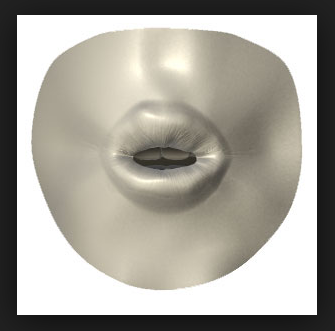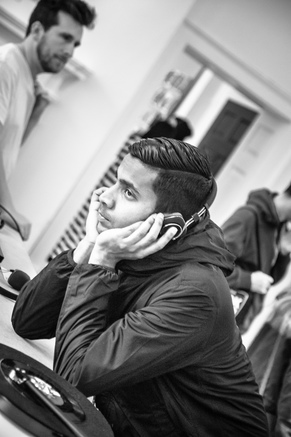|
Pronunciation errors on the "w" and "v" sounds are common for those with a variety of language backgrounds. For most, learning how to clearly differentiate the two sounds is an important step in pronouncing them correctly. These sounds can be distinctly identified and produced by how they are formed with the mouth.
Next, try these minimal pair words with w and v. Make a clear distinction between rounded lips w, and lip on teeth v. Practice with the recording below.
0 Comments
 Your native language background will affect your American English in terms of pronunciation, intonation, grammar and vocabulary. Whether you first spoke Hindi, Gujarati, Telugu, Bengali, Tamil, Punjabi or another language, what you heard and learned first shapes your phonological development (your sound system for listening and speaking). Indian English is a dialect of English and it might have been the first English you heard and spoke. The patterns of Indian English will also affect your American English pronunciation and intonation. Here are some things you might expect if you are a speaker of Indian English: Pronunciation: You may have difficulty with the w and v sounds. Your "th" sounds may sound like t or d. You may have trouble with the sounds at the ends of words, especially b, d, g, ng, and z. Your r sounds might be rolled at the beginnings of words and might sound like "uh" in the middle and at the ends of words. You might use pure vowels "ah, o, oo, ay and ee" and have trouble with American short vowels and diphthongs (gliding from one vowel to another). Intonation: While you are likely able to understand American Intonation and how different patterns change the meaning of a sentence, you might speak with intonation that is difficult for the American listener to understand. This could include stressing the incorrect word in a sentence or syllable in a word. Rate: You might feel that speaking quickly is a more American style, or that you will be perceived as more intelligent if you speak faster. In reality, speaking too quickly can lead to more pronunciation and intonation errors. More important than a fast rate is using appropriate suprasegmentals, such as linking, blending and liaisons between words. Understanding what your accent is comprised of is the first step in making changes to increase how well you are understood when speaking American English. Take a free screening for information about your accent here. Not only does signing your favorite American song help you make subtle changes in your American Accent (see this post for details), but you might do well with remembering new words by singing them. We all have pop songs, advertising jingles and tv theme songs from our childhood taking up valuable memory space in our brains, but perhaps we can harness our ability to remember words set to music to our own advantage. Researchers in Scotland set up an experiment which involved teaching groups of people words in Hungarian. Those who were taught using a method of signing the words had the best results when asked to remember them later. You can read more details here. When you come across a new word you'd like to remember or a word for which you need to change your pronunciation, if you can find a song with the correct rhythm, you can sing the word to store it for later. For example, let's say you need to learn the stress pattern for the word technology. This word has the stress on the second syllable, technology. Take the song Twinkle Twinkle Little Star, and change the words to "Now I sing technology, now I sing technology." Tying the correct word stress and pronunciation to a tune might help build pathways in your brain to correctly pronouncing this word in running speech. And it might also be fun.
How well can we understand each other? Does our experience listening to non-native speakers help or hinder our ability to understand when listening situations are difficult? Apparently, we may actually be biased based on our experience. In a study reported in the Journal of the Acoustical Society of America, researchers found that those with experience interacting with Chinese Canadians had a slight bias toward misunderstanding native-speaking Chinese Canadians as compared with white Canadians when they were shown a photo of the speaker. They showed no difference in their ability to correctly transcribe the speech of the two groups when no photos were shown. Read more about the findings here.
 If you are concerned that your accent will affect your success in job interviews, you are not alone. Regional accents in British English are sometimes discriminated against, according to a survey of employers. It may be that choice of language including use of regional slang has more of a negative effect than accent, but when looking for employment, you may not know how to make the best choices for your interviews. Having some tools at your disposal, including an understanding of your own accent, and the best choice of vocabulary and expressions for formal situations, is your best defense when approaching an interview situation. You can read more about this issue in a recent article in the Guardian. To learn more about slang and American expressions, check out this earlier post. |
Subscribe to this blog:
Categories
All
Archives
March 2021
Copyright 2020
Christine Dunbar Have Questions?
Get A Free Consultation We offer a free 30-minute phone consultation. Schedule yours now. |





 RSS Feed
RSS Feed



